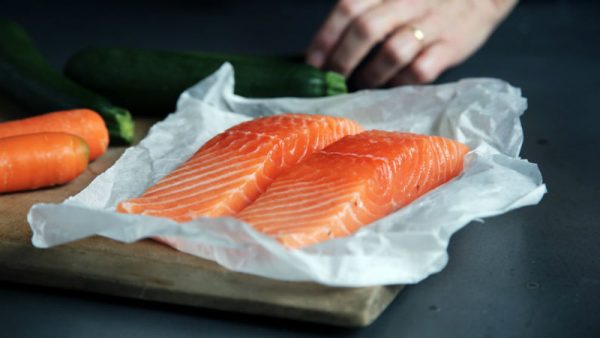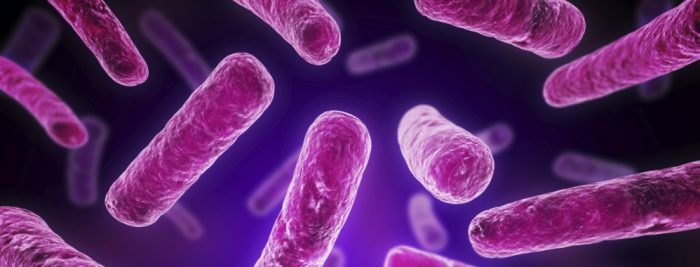
Fat Deficiency Symptom Checker
Too little fat in your diet? Say what? Yes, you, might be getting too little.
Not eating enough fat can create all sorts of problems including, believe it or not, making you fatter. [more on that later] Even the US Dietary Guidelines Advisory Committee has changed their recommendations on fat intake. It no longer includes an upper level of total fat intake AND even more importantly, it doesn’t recommended low fat foods or diets for obesity prevention.
Yo udefinitely want to avoid the bad fats – transfats, overheated fats, hydrogenated fats [read labels, limit fried and grilled food, and get rid of the margerine and processed meats. – but you need the good fats [fish, avocados, olive oil] for energy, hormone synthesis, skin health, brain function and more.
How do you know whether you are getting adequate levels of fat? Pay attention to the following symptoms.
You might need more good fat in your diet if:
- You feel tired during the day. A high sugar diet will cause your energy to spike and drop, leaving you loggy and lethagic. Fat helps to stabilize the blood sugar roller coaster. For example, one study looked at the effects of eating a standard lunch meal with and without the addition of half an avocado (a source of fat). Participants then had their blood glucose and insulin levels measured at specific intervals. Despite the fact that the avocado increased the meal’s calorie and carbohydrate content, the avocado-eating participants showed no increase in blood sugar levels when compared with those who ate the standard lunch. In addition to stabilizing blood sugar levels, fat can boost energy as it’s the most concentrated source of energy for the body at 9 calories per gram (versus 4 calories per gram of protein or carbohydrates).
- You can’t lose weight. Eating fat may actually help you burn unwanted fat, especially the fat around the middle. By increasing the amount of fat you eat, whilst consuming less carbohydrates, you may find yourself more satiated and fueled throughout the day.American Diabetic Association study found that a diet rich in monounsaturated fats (MUFAs) helped reduce belly fat in participants.
- You feel hungry all the time. Fat improves satiety and regulates appetite.
- You feel jumpy, overwhelmed in crowds. It might be an omega 3 deficiency. Researchers from the American Psychological Association tried to mimic the effects of sensory overload in animals. They first exposed mice to a soft tone followed by a loud one. The creatures who were fed a low omega 3 diet were startled and reacted poorly to the loud sound, while those with adequate levels of the fat remained calm throughout.
- Your aren’t as mentally sharp as you use to be. Fat is vital for building brain cell membranes and to create a barrier of fatty insulation around each nerve fiber, helping messages travel to the brain more quickly.Omega 3s fats are highly concentrated in the brain and are vital for memory and mental performance.Your kids need them too. Research has shown getting enough omega 3 during the pre-school years can help prevent attention deficit hyperactivity disorder (ADHD) and improve academic performance. A large scale study highlights the benefits to mental health of following a Mediterranean diet – known to be high in healthy fats. The TLS Weight Loss Solution diet is a habit- changing system that can get you on track with eating the Mediterranean way.
- You are feeling depressed or anxious. When scientists looked at the diets of almost 22,000 Norwegians, they discovered that those who regularly took cod liver oil (which is high in omega 3) were 30% less likely to have symptoms of depression than those who didn’t.Research has even shown that treatment with omega 3s is as effective, or more effective, than antidepressant medications – a drug that one in ten Americans take regularly.
- You have issues with Anger or Hostility Omega 3 deficiencies have been associated with high levels of impulsive behavior, hostility, cynical ideas and anger in otherwise healthy adults!
- Your skin is dry and flaky. You can slather on moisturizers all day long, but you won’t solve the problem of dry skin if you are not eating your fats. Fats stimulate your oil-producing glands which naturally moisturize the skin. Of particular importance are omega 3 and omega 6 fats are necessary for healthy skin cell membranes and the production of lipids – the part of the skin’s barrier that locks in water.
- Your eyesight is failing. Omega 3 fats will help stave off macular degeneration, the leading cause of blindness in the world, according to a 12 year study, which found that participants who ate the most omega 3s were 30% less likely to develop macular degeneration than those who ate less. But omega 3s do more than just stave off macular degeneration – they also help treat glaucoma and reduce the risk of dry eye syndrome.
- Your joints hurt. Those with arthritis or other painful joint conditions may benefit from some healthy fats. These help to reduce inflammation throughout the body, which could alleviate arthritis and other joint pains. Omega 3 fatty acids have been found to decrease symptoms of morning stiffness and tender or swollen joints, along with helping increase blood flow during exercise.
- You have vitamin Deficiencies. If you have been diagnosed with a vitamin deficiency, despite getting enough through diet or supplementation, it could be an absorption issue.Several vitamins, including A, D, E and K are known as the fat soluble vitamins as they require a source of dietary fat to be absorbed and used in the body! It’s yet another reason to consume a good quality source of fat at every meal.
- You are experiencing fertility issues. Low fat diets can even raise the risk of menstrual problems and difficulty conceiving. A 2007 study conducted by the Department of Nutrition and Harvard School of Public Health found that eating too much low-fat dairy may increase the risk of infertility while intake of high fat dairy foods may decrease this risk!
- You have other hormonal imblances. Perhaps one of the most fundamental reasons to get enough dietary fat is due to its important role in hormone synthesis – particularly in the production of the sex hormones and the prostaglandins, hormone-like substances that regulate many of the body’s functions.
- You have gut problems [candidas, gassiness, digestive distress] Diets that are higher in fat and fiber are thought to be linked to a healthier gut environment. Sick gut, effects your brain.
- You have Low HDL Cholesterol. When it comes to cholesterol there are two numbers you should be concerned with: the levels of HDL and LDL. Healthy HDL levels protect against heart disease, whereas low levels have been shown to increase your risk of cardiovascular problems. To raise HDL cholesterol, try adding some more good fats. The Mayo Clinic recommends eating more healthy fats MUFA [think fish] and PUFA [think nuts and seeds] to improve HDL’s anti-inflammatory abilities.
ONE COMMON FAT DECIENCY IS OMEGA 3..
Too much omega 6 [from vegetable oils in particular] can lead to inflammation, heart disease, rheumeatorid arthritus, mood disorders and much more.
According to a 2006 report, anthropological evidence suggests that humans evolved consuming a ratio of 1:1 of omegas, yet today we consume up to 16.7:1 omega 6s to omega 3s. This imbalance can lead to inflammation in the body, which can cause a whole host of illnesses such as heart disease, cancer, rheumatoid arthritis and more.
This imbalance likely exists because of our penchant for processed foods – which are high in omega 6s but devoid of omega 3s! Most processed vegetable and cooking oils are also loaded with omega 6 fatty acids.
By sticking to whole, natural foods – which contain both omega 3s and omega 6s – we can get our fill of both these essential fats without tipping the natural balance too far in the wrong direction.



